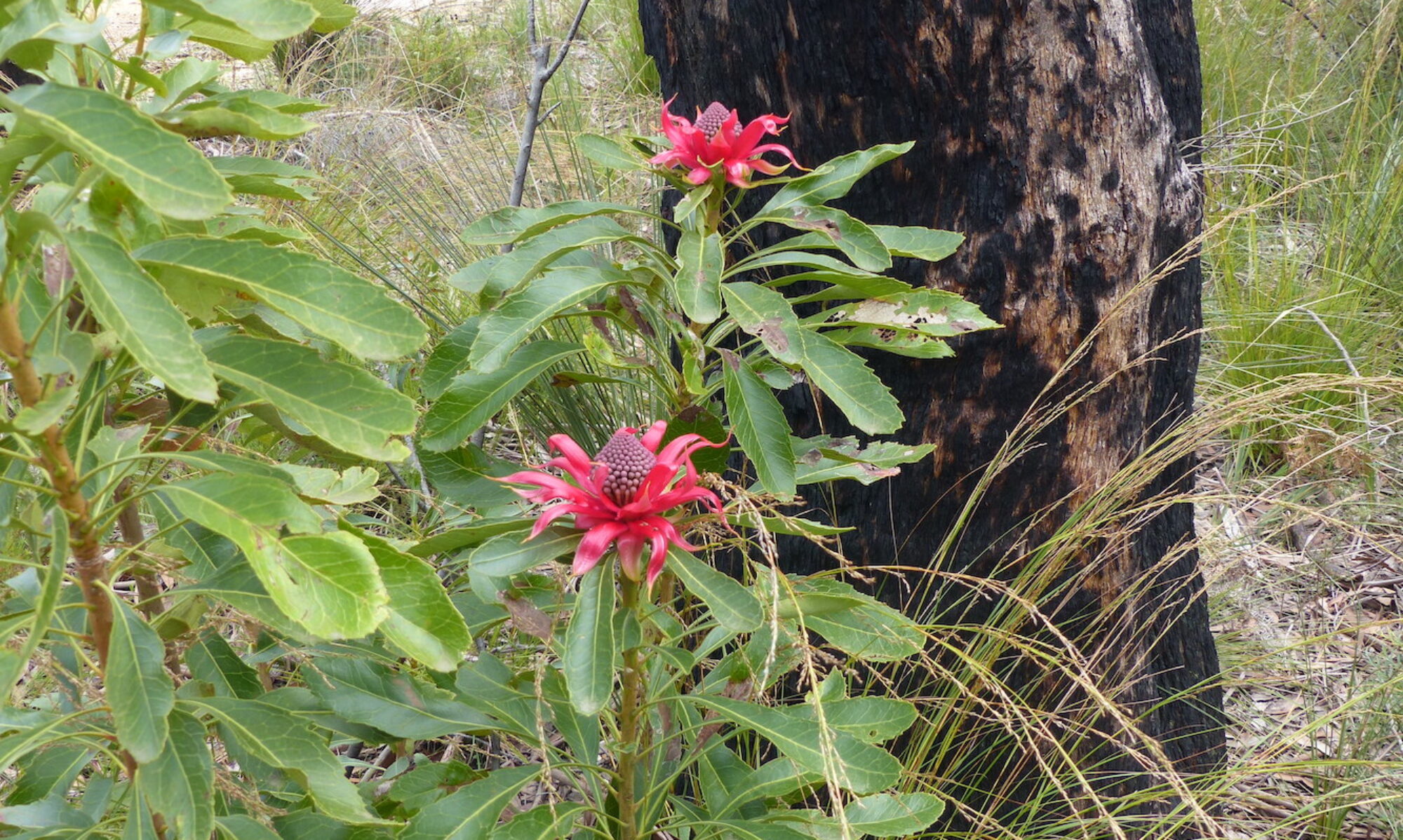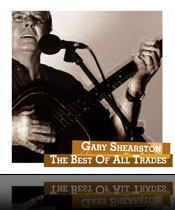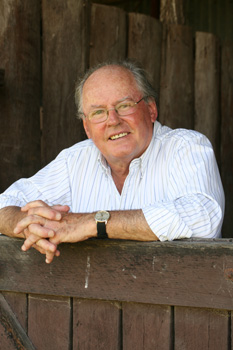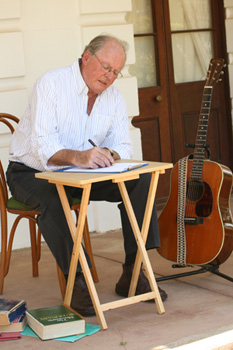Rouseabout RRR46 (2009)
review ©️Jim Low *
The last studio recordings made by Australian singer-songwriter Gary Shearston came out in 2001. In 2007 a selection of Gary’s recorded work was released in recognition of his valuable contribution to Australian music.
Now Rouseabout Records, also responsible for these previously mentioned CDs, has released a new collection of Gary’s songs on two CDs. For those who have followed Gary’s musical career, this has to be very exciting news. For others, it’s a great chance to become familiar with the talents of an exceptional Australian songwriter.
In this song collection Gary includes new recordings of Pilgrim Man and Salvation Blues, renaming the latter Deliverance Blue. These two songs were included on his 1989 Aussie Blue album and they are full of wonderful Australian images.
The twenty four song collection begins with the blues song Another Song. It tells of Gary’s disappointment when American authorities at first denied him the right to perform in America, after he left Australia in the mid 1960s to pursue his music career overseas. Although the song has a somewhat world-weary feel to it, it also possesses a very positive attitude to the whole sorry affair.
In his song writing, Gary has never shied away from the many problems that face our world. So songs like Peace Be With You, The Thorns Are Covered With Roses and A New Way of Life, with their confronting litany of frustration, avoid conclusions of despair. Instead, like another song Millennium, they find things to celebrate in life and place great value in the human potential to continue striving for ideals.
Tenterfield is a beautiful, heart-felt homage to the town where Gary spent much of his childhood and now resides. In a song like this you quickly become aware of his ability to capture the setting for events and so allow us to appreciate some sense of place.
On That Sea Which Has No End is a powerful song that laments the violent death of a friend. With just enough detail, Gary relates a story of tragedy that immediately captures the attention of the listener. I was left wondering whether the friend was present during the events related in the song Crafty Old Captain which was included on the Aussie Blue CD. I contacted Gary and he told me that, yes, his friend was one of the two sailors mentioned who kept watch and was responsible for getting their vessel safely to shore.
The poignancy of The Norwich Bells is another example of Gary’s ability to tell a story in song and gain attention from the start. The delicate beauty of the melody further contributes to making this a very emotional journey. The song faithfully documents the human condition when it is in a most vulnerable state. Achieving this with such sensitivity and compassion is, in my opinion, the mark of a truly accomplished songwriter.
The song Sea Kings relates the tragic loss of life of Australian Navy personnel while assisting in relief operations on the Indonesian earthquake-ravaged island of Nias in 2005. Without in any way dishonouring the memory of the men and women who lost their lives, Gary makes a comment in the chorus about the perversity of war and the preparations for it.
This tragedy, he says:
” … helped us forget for a while
That we made you for war,
Which we’ve learned to our cost
We should study no more.”
The song reminds me of his 1960s song The Voyager about another fatal, peacetime accident. This song also contains a similar warning. (“Ships must sail the seas for peace before another dies.”)
Some of the songs have already enjoyed a life, long before these recordings were made. I first remember hearing an emotive performance of When The Cross Turns Over on the ABC Australian Story programme in 1996. I heard Gary sing his fine tribute to Richard Brooks, The Harmonica Man, at a Sydney performance in 2004. Brooks performed on most of Gary’s seminal 1960s CBS recordings. His memorable, tasteful and expressive harmonica playing was an integral part of these recordings.
There are other stirring songs of tribute, memory and celebration including Hey, Charlie Perkins and A Song for John Baker, a close friend of many years. There is also a delightful song about his young son with which all fathers are bound to empathise.
In his production of these recordings, Gary has set the songs in a rather sparse, musical landscape with minimum accompaniment. This allows his warm, distinctive, Australian voice to be prominent. It also gives the songs an engaging intimacy, reminiscent of his early recordings, as well as a fresh energy that is often only achieved in live performance.
Special mention should be made of David Hume’s very fine acoustic, slide and electric guitar playing which enhances each song. The valuable contribution of Roger Ilott and Penny Davies deserves a worthy mention, not forgetting that the songs were recorded at their Restless Music studio in Stanthorpe, Queensland.
The songs that make up this 2CD set are, as the title song says, definitely “sung from the heart”. We live in uncertain times and these are songs of our time. They are honest responses to the world we live in and share. While acknowledging sorrow, tragedy, despair and wrongdoing that form parts of our life experience, these songs celebrate and inspire a real hope for and faith in humanity. Above all, they are characterised by compassion. Let’s hope that songwriters like Gary Shearston continue this most valuable trade. Quoting once again from the title song:
“There’s always another song still to be sung
It’s the best of all trades to make songs
And the second best to sing them.”
* This review ©️ Jim Low first appeared in Simply Australia in April 2009



